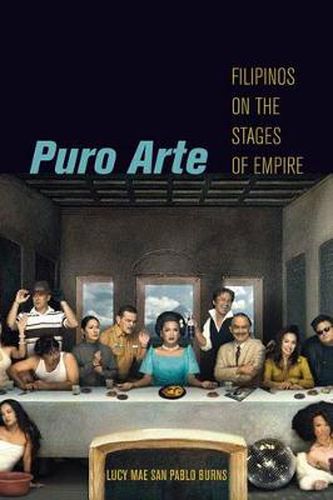Readings Newsletter
Become a Readings Member to make your shopping experience even easier.
Sign in or sign up for free!
You’re not far away from qualifying for FREE standard shipping within Australia
You’ve qualified for FREE standard shipping within Australia
The cart is loading…






Puro Arte explores the emergence of Filipino American theatre and performance from the early 20th century to the present. It stresses the Filipino performing body’s location as it conjoins colonial histories of the Philippines with U.S. race relations and discourses of globalization. Puro arte, translated from Spanish into English, simply means pure art. In Filipino, puro arte however performs a much more ironic function, gesturing rather to the labour of over-acting, histrionics, playfulness, and purely over-the-top dramatics. In this book, puro arte functions as an episteme, a way of approaching the Filipino/a performing body at key moments in U.S.-Philippine imperial relations, from the 1904 St. Louis World’s Fair, early American plays about the Philippines, Filipino patrons in U.S. taxi dance halls to the phenomenon of Filipino/a actors in Miss Saigon. Using this varied archive, Puro Arte turns to performance as an object of study and as a way of understanding complex historical processes of racialization in relation to empire and colonialism.
$9.00 standard shipping within Australia
FREE standard shipping within Australia for orders over $100.00
Express & International shipping calculated at checkout
Puro Arte explores the emergence of Filipino American theatre and performance from the early 20th century to the present. It stresses the Filipino performing body’s location as it conjoins colonial histories of the Philippines with U.S. race relations and discourses of globalization. Puro arte, translated from Spanish into English, simply means pure art. In Filipino, puro arte however performs a much more ironic function, gesturing rather to the labour of over-acting, histrionics, playfulness, and purely over-the-top dramatics. In this book, puro arte functions as an episteme, a way of approaching the Filipino/a performing body at key moments in U.S.-Philippine imperial relations, from the 1904 St. Louis World’s Fair, early American plays about the Philippines, Filipino patrons in U.S. taxi dance halls to the phenomenon of Filipino/a actors in Miss Saigon. Using this varied archive, Puro Arte turns to performance as an object of study and as a way of understanding complex historical processes of racialization in relation to empire and colonialism.